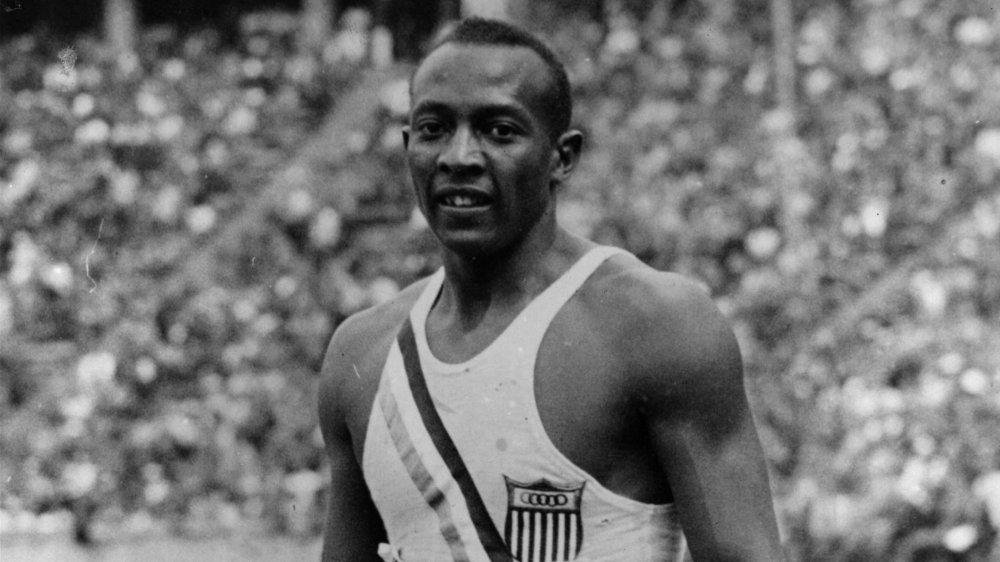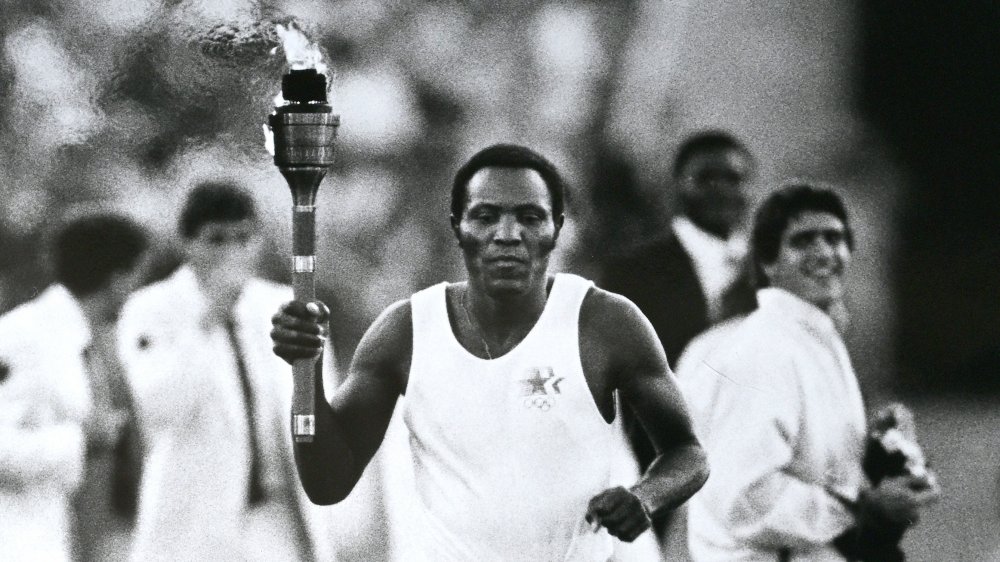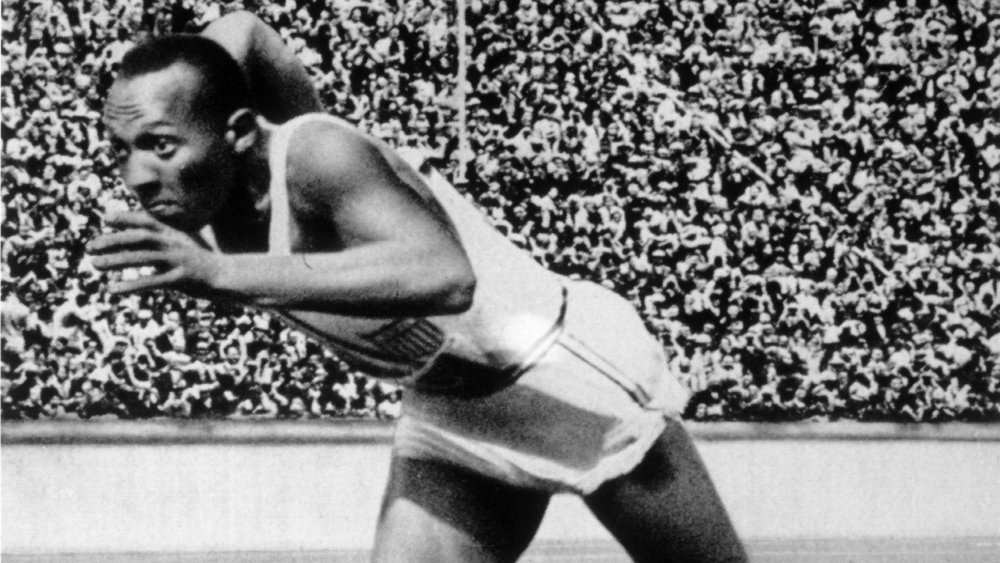The Crazy Real Life Story Of The 1936 Olympics
You have to ask yourself: "Who in their right mind gave the 1936 Summer Olympics to the Nazis?" After all, it wasn't just Indiana Jones who found them distasteful. The good news is, nobody did that. The games were awarded in 1931 to Germany, but the Nazis didn't come to power until 1933. As NPR explains, they sort of inherited the thing. There was even question whether they'd go through with it. Said Susan Bachrach, curator of special exhibitions at the United States Holocaust Memorial Museum in Washington, D.C., the Nazis "weren't known for their internationalism."
The head of Germany's propaganda ministry, Josef Goebbels, saw the advantage of going ahead — sort of. As Bleacher Report tells us, in 1935 Germany had stripped all Jews of citizenship and legal rights. Hitler appealed to the International Olympic Committee to ban Jewish participation in the games, but failed. Instead, he mandated that only pure Aryans would represent Germany. There was an international movement to boycott the games, which led Hitler to clean up the nation's act, at least temporarily, to give the impression that Germany was a good, wholesome place and an ideal host for the competition.
The tradition of the Olympic torch relay began in 1936
One part of the 1936 games that has nothing to do with politics has become a tradition (and in a good way): the Olympic torch relay. Germany was the first to institute the journey of the torch (built of Germany steel, of course) from Greece to Berlin.
Encyclopedia Britannica says that 49 countries ultimately chose to participate, including the United States. The proceedings were filmed for a later documentary by Leni Riefenstahl, who pioneered techniques for capturing the action of the games that are still used today. The games were also televised, after a fashion, as WBUR reports: the events were sent by closed-circuit TV to various viewing halls around the country. More important, the Germans invested heavily in radio equipment and technology to beam the games around the world — audio, anyway.
The head of America's Olympics effort took the position that the games were for athletes, not for politicians, says Biography, and so America committed to the competition.
Jesse Owens brought home four gold medals
The greatest American standout that summer was Jesse Owens, a 28-year-old Black sprinter from Alabama who took home not one, but three individual medals, plus a relay medal — all gold. And setting world records while doing it. It's sometimes reported that Hitler snubbed Owens by failing to salute him, but Biography relates that Hitler had decided to treat all athletes equally, and so after the first day he saluted no one. The audience, however, went nuts for Owens, chanting his name over and over again in excitement.
The 1936 games saw the first time basketball was an event. First time out, and the Germans built the court outside — where the games were played on grass. Nevertheless, the United States took the gold there as well, with a score of 19-8 over Canada.
Many consider the 1936 Summer Olympics the first example of politics nearly overtaking the games. Time quotes author David Clay Large (Nazi Games: The Olympics of 1936): "Those games really set the stage for the Olympics as we know them today. That injection of politics and extreme nationalism, that's continued. There's no question that nationalism is a very fundamental part of it all."


